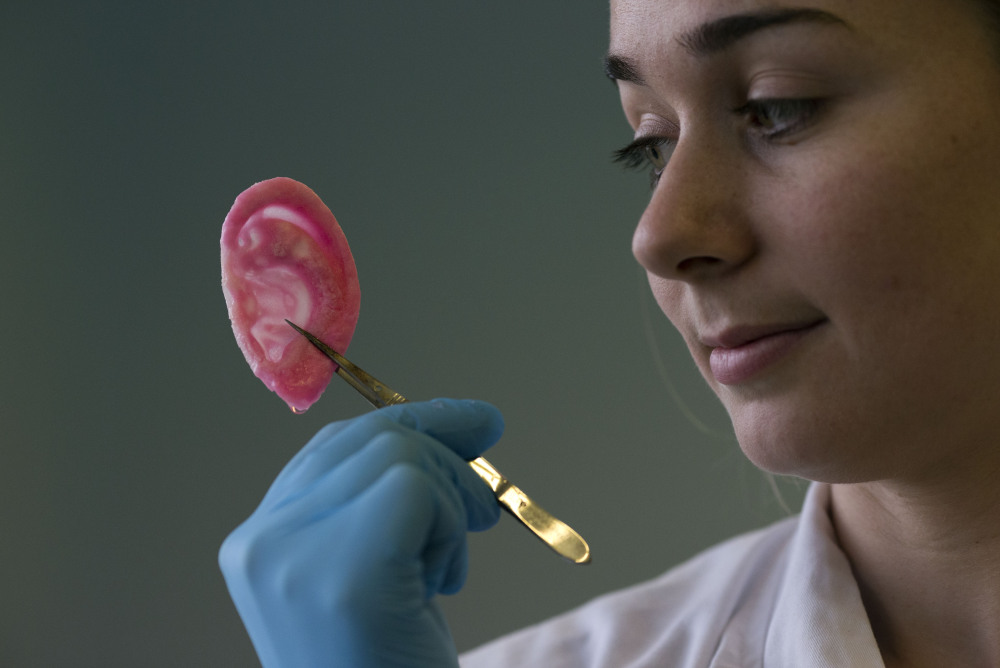LONDON — In a north London hospital, scientists are growing noses, ears and blood vessels in a bold attempt to make body parts in the laboratory.
It’s far from the only lab in the world that is pursuing the futuristic idea of growing organs for transplant. But the London work was showcased Tuesday as Mayor Boris Johnson announced a plan to attract more labs to do cutting-edge health and science research in the area.
While only a handful of patients have received the British lab-made organs so far– including tear ducts, blood vessels and windpipes – researchers hope they will soon be able to transplant more types of body parts into patients, including what would be the world’s first nose made partly from stem cells.
“It’s like making a cake,” said Alexander Seifalian at University College London, the scientist leading the effort. “We just use a different kind of oven.”
British authorities have invested nearly $6.7 million in the plan to stimulate research in the London-Oxford-Cambridge area. It aims to attract companies to the area to foster collaboration and promote research and manufacturing. A major center for biological research will open in London next year.
University College London is a partner in the campaign. During a recent visit to his lab there, Seifalian showed off a sophisticated machine used to make molds from a polymer material for various organs.
Last year, he and his team used that material to mold a nose for a British man who lost his to cancer. Then they added a salt and sugar solution to the mold to mimic the somewhat sponge-like texture of a natural nose. Stem cells were taken from the patient’s fat and grown in the lab for two weeks before being used to cover the nose scaffold. Later, the nose was implanted into the man’s forearm so that skin would grow to cover it.
Seifalian said he and his team are waiting for approval from regulatory authorities to transfer the nose onto the patient’s face but couldn’t say when that might happen.
The polymer material Seifalian uses for his organ scaffolds has been patented and he’s also applied for patents for their blood vessels, tear ducts and windpipes. He and his team are creating other organs including coronary arteries and ears. Later this year, a trial is scheduled to start in India and London to test lab-made ears for people born without them.
“Scientists have to get things like noses and ears right before we can move onto something like a kidney, lungs or a liver, which is much more complicated,” said Eileen Gentleman, a stem cell expert at King’s College London, who is not involved in Seifalian’s research.
Send questions/comments to the editors.



Success. Please wait for the page to reload. If the page does not reload within 5 seconds, please refresh the page.
Enter your email and password to access comments.
Hi, to comment on stories you must . This profile is in addition to your subscription and website login.
Already have a commenting profile? .
Invalid username/password.
Please check your email to confirm and complete your registration.
Only subscribers are eligible to post comments. Please subscribe or login first for digital access. Here’s why.
Use the form below to reset your password. When you've submitted your account email, we will send an email with a reset code.